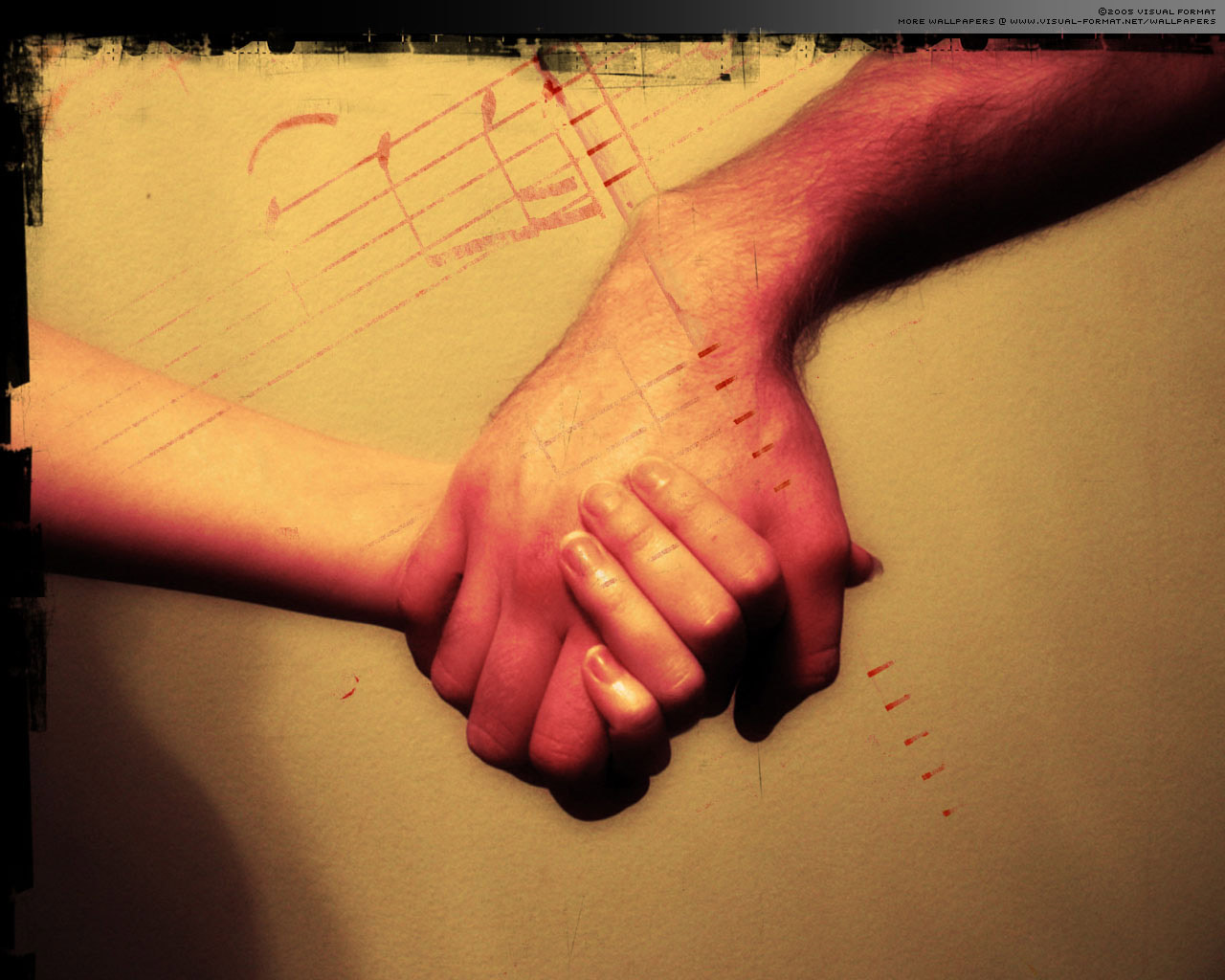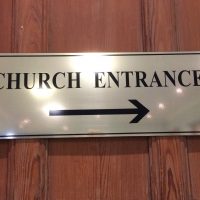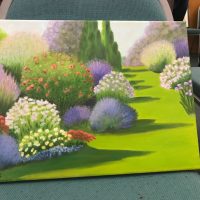Sermon given at St. Andrew’s Ealing 1st March 2020 by Revd Sue McCoan
Isaiah 43:1-4
Matt 4:1-11
On Friday I went to the new David Hockney exhibition at the National Portrait Gallery. I highly recommend it. It is, as you might expect, a series of portraits, but they are not society portraits of famous sitters. They are all drawings – in pencil, pen, coloured pencils, even on an iPad. Hockney, like Picasso who was one of his heroes, can sometimes go a bit wild in his paintings, but he draws brilliantly. And these pictures are, for the most part, exercises in observation and honesty.
The works in the exhibition are arranged by sitter. So there is a small room with Hockney’s drawings of his mother; there is a room for each of the three friends who he has drawn many times over the years – it’s rather wonderful, as you can see them maturing and then ageing, as you go round the room – and then there are the self-portraits. Some are carefully rendered, like the first one I showed you; others are much freer, capturing the essence of a pose. Here he is looking pretty glum. This is drawn with a brush and watercolour, very loose, but really catches that pose, of leaning forward, peering into the mirror. And all these drawings are unflinching in their honesty. He shows his grey hair, bags under the eyes, jowls, hunched shoulders… and still the bright, sharp eyes, focused, watching.
Hockney describes his drawings as a search for truth. So he is not afraid to look with honest appraisal on his own ageing.
There is something of this unflinching honesty, this careful reflection, in the account of Jesus in the wilderness – only Jesus has no physical mirror; he is looking within, searching his own soul.
Jesus takes this time out for his mental and spiritual preparation for going public with his healing and teaching. We don’t know what he’s been doing up until the time of his baptism, but once he has been baptised by John the Baptist, and has heard the voice of God saying, ‘this is my Beloved Son’, he knows there is no going back. Jesus is bringing in the kingdom of God on earth and he needs to work out how he’s going to do it. So he takes this time, in the wilderness, away from other people, away from any distractions, to reflect.
Matthew gives us details of three specific issues that Jesus reflected on.
First: Am I in this for my own self-interest? Jesus could call on God to provide food. God has, after all, provided for other people in the past – manna in the wilderness, food for Elijah. But food, at this point, would be a distraction. It would bring comfort and take him away from the rest of his reflection. So no. He will be sustained by the word of God, not by comfort eating.
Staying with the reflection takes him deeper. Am I in this for fame and glory? Jesus could stage a dramatic leap of faith and rely on God to save him. God has, again, saved people dramatically in the past – crossing the Red Sea, giving victory in battle to an army hopelessly outnumbered. But fame and glory would also be a distraction. It would attract followers, but the wrong kind of followers, those who had come to admire, not to receive God’s grace. So no. he will trust in God without any further proof or demonstration.
The trusting takes him deeper still. Am I in this for power? The people are looking for a leader. They want this leader to take political power, to challenge the rule of the Roman Empire. God has made powerful leaders before – King David, and then King Solomon, who had other countries falling over themselves to be his allies and showering him with gifts. But taking power against the Romans means you are playing the same game as the Romans; you are playing by the rules they have already set; you are drawn into their world – and Jesus is here to bring in a new world, of an entirely different kind. So no. He will play by God’s rules; he will give obedience only to God.
Jesus wrestles with all this, and then finds the inner peace, the angels attending to his needs. Then, and only then, he is ready to go back to Galilee and get started.
We take the model of this time of reflection, but we use it at a different time – at the other end, as it were, of the earthly ministry of Jesus. I said earlier that we use Lent as our time of mental preparation for Holy Week, when we walk with Jesus through his arrest, crucifixion and death. In the Reformed Tradition, we make very little of holy week; it’s quite possible to go from Palm Sunday to Easter Sunday without much thought of what happened in between. But if we make Lent a preparation only for Easter, we are missing something deeply precious.
At Easter, we celebrate the power of God’s love, more powerful even than death. In Holy week, we dwell on the depth of that love – on just how much God loves us, on how much Jesus is prepared to go through for our sake. It is in holy week that this testing time of Jesus in the wilderness pays out in real money – when his refusal to take on the Roman Empire on their terms ends in that Empire authorising his death; when his rejection of dramatic rescue means that he will not ask God to break him free of the cross; when his disregard for his own comfort allows him to be a comfort to his disciples.
We will not have the same issues that Jesus had. But we might, I suggest, have the same kind of honesty about ourselves. We might make time, during Lent, to have our own time of reflection. We might ponder on the ways in which we might live out our calling in this world; how we might play out part in bringing God’s kingdom in 21st century London.
We might ask ourselves, for instance: am I just coming to church because it makes me feel better? There’s nothing wrong with feeling better, and I hope our worship is both a comfort and an encouragement for all of us. But it’s not an end in itself. Gathering for worship is about equipping ourselves for the rest of the week. How does the comfort we find in church help us to bring comfort to others?
We might ask ourselves about the place of Christianity in the modern world. Do we feel under threat because of other faiths, or of rising secularism? Or do we feel that we have something really rich and beautiful to offer, and that we might share gifts graciously with others?
We might ask ourselves what our role is as Christians in the current political situations. Are there ways we can engage, without being drawn in to the bitter arguments and anger that seem to be the general currency these days?
I’m not offering answers to these questions. I’m inviting you to engage with them yourselves. You may all come up with different responses, or indeed with different questions. And this is again where the honesty comes in. What might be a burning issue for one person may mean nothing to someone else; what is right for one person may not be right for another; what for one person would be a life-giving challenge would be for someone else a burden too heavy to bear. One person’s much-needed comfort may be another person’s soft option.
Here’s a thing to remember with all this honesty. When we looked at that David Hockney self-portrait, we saw the signs of ageing, but we also saw the piercing blue eyes. Being honest with ourselves is not about finding all our faults and beating ourselves up. It is also being honest about our good points, our gifts, our graces, our loveliness.
Do not be afraid, said Isaiah in our other reading, ‘for I have redeemed you. I call you by name; you are mine. So when you go through the storms of life, you won’t drown; for I shall be with you. And you are precious in my sight.
When Jesus came to the end of his testing time, angels came and waited on him.
May we be honest before God this Lent. May we allow ourselves to be held in God’s gaze of judgement and compassion, of truth and love. And when holy week comes, may we be ready to walk with Jesus into the depths, and then we too may know new life in him.
Amen.






